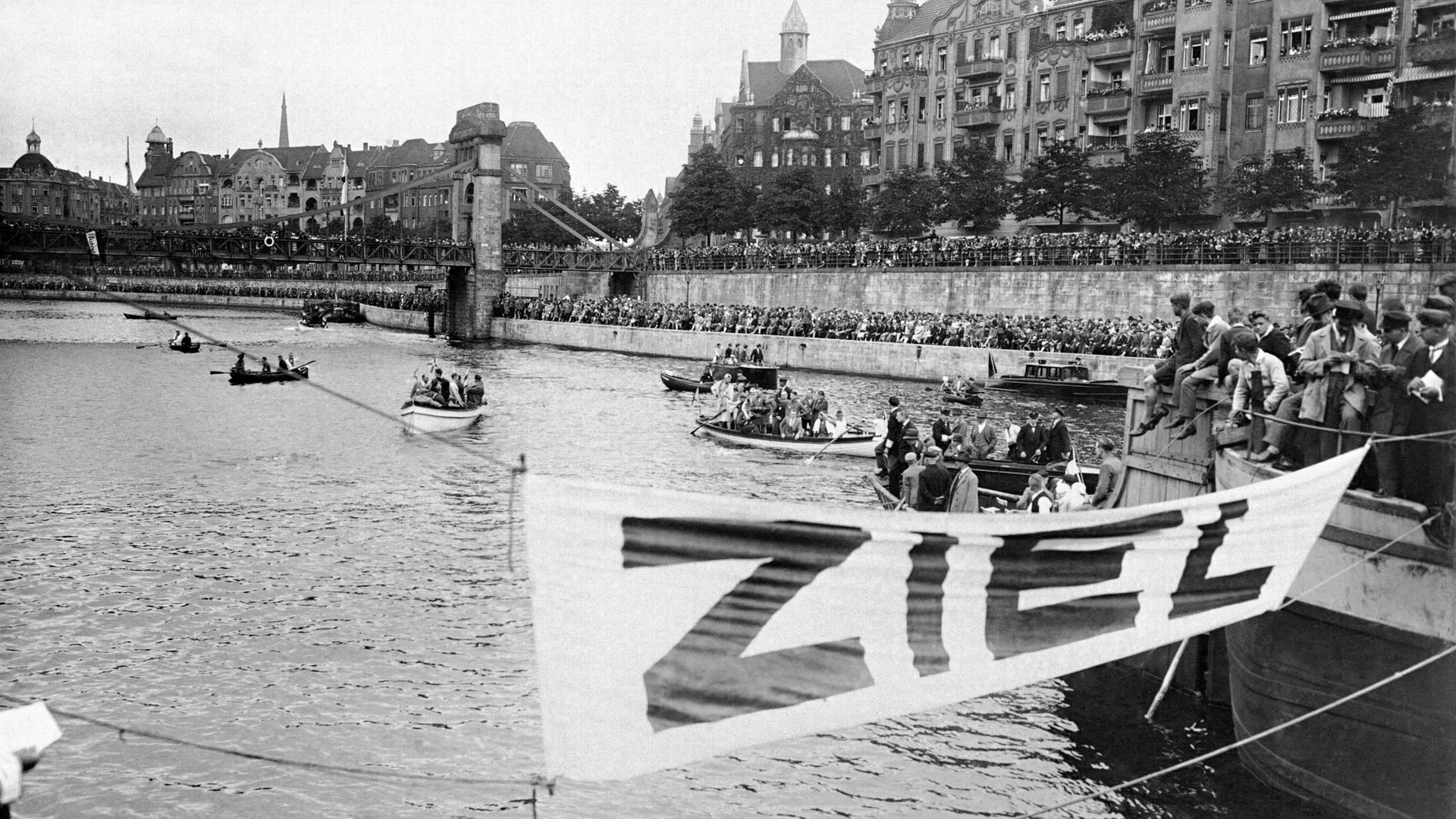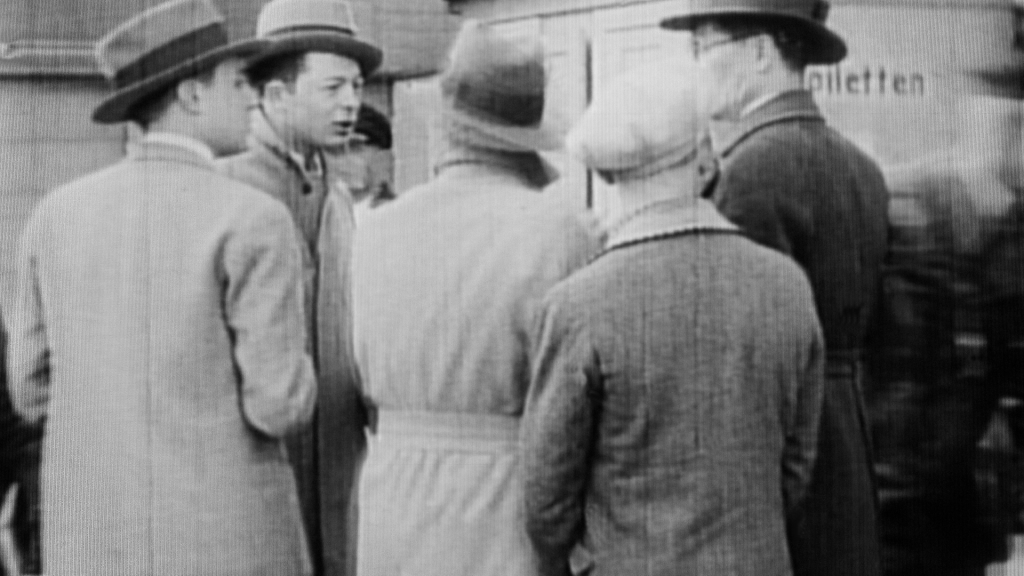
It’s an odd sensation, feeling nostalgic for a place to which you have no connection and a time that predates the births of your parents. but Vienna and Berlin between the wars always invoke a strangely deep yearning. From almost a century’s distance there’s a faintly prelapsarian feel to a cultural flowering that produced some of this continent’s most exciting literature, art, music, theatre and cinema with two cities thrumming with creativity at its heart.
It was a prelapsarian age of a bawdy kind, a Garden of Eden with schnapps and dancing, but given what followed during the 1930s its relative innocence holds strong appeal for those of us who value our continent and its culture.
Nostalgia is by its very nature a rose-tinted sensation – both cities were blighted by hyperinflation and desperate poverty – but this was a period when Europe defined itself for the decades to come, equipping the continent to battle a cultural bombardment from the other side of the Atlantic once the actual bombardments had ceased.
The period has been fortunate in its chroniclers. From Christopher Isherwood’s Berlin novels to Stefan Zweig’s fiction and reportage it’s easier to gain a feel for this period in these cities than almost any other. Joseph Roth was a man who practically emerged from the womb pining for the old days and set about documenting brilliantly as much as he could as dark political clouds gathered.
Adding to the record of the period comes a collection of writing by Billy Wilder. Yes, that Billy Wilder, the Sunset Boulevard, Double Indemnity and Some Like It Hot Billy Wilder. Billy Wilder on Assignment: Dispatches from Weimar Berlin and Interwar Vienna gathers some of the journalism the future Hollywood legend produced during the 1920s and early 1930s when he worked as a feature writer for newspapers first in Vienna, then Berlin.
Wilder was born in Sucha, a small town in Galicia near Kraków, in 1906. Although he was christened Samuel his mother had spent time in the US and become a fan of Buffalo Bill’s travelling Wild West show, hence her son was always known as Billy.
Wilder’s father moved the family to Vienna when Billy was still a boy and he was immediately captivated by the Austrian capital’s cultural richness. An innate curiosity prompted a career in newspapers, first as a crossword compiler, then in his late teens as a staff writer on the Viennese daily Die Bühne.
Wilder was circulating among arguably the greatest collection of writers, artists and musicians ever to emerge in one city at one time. His acquaintances in the cafes around the Ring included Joseph Roth and the actor Peter Lorre, while his mix of friendliness and chutzpah opened doors to interviews with some of the era’s biggest names, from film star Asta Nielsen to the future Edward VIII.
“In a single morning I interviewed Sigmund Freud, his colleague Alfred Adler, the playwright and novelist Arthur Schnitzler and the composer Richard Strauss,” he recalled in 1963.
Yet by 1926 his horizons had spread way beyond Vienna. When Wilder interviewed Paul Whiteman the American bandleader invited him to the next stop on his European tour, Berlin. Wilder accepted – and never went back to Vienna.
It was perfect timing. The Weimar capital was nearing its cultural peak and as well as making himself indispensable to the Berliner Zeitung am Mittag newspaper, before long Wilder was also writing for the screen, most notably with 1930’s Menschen am Sonntag, ‘People on Sunday’.
Wilder left for the USA in 1933, disturbed by the rise of Hitler, but in truth it was always a move he was likely to make. His fascination with America is obvious in Billy Wilder on Assignment. Whenever a star name from across the Atlantic arrived in Vienna or Berlin there was Billy, charming hotel receptionists and stage door porters into allowing him access, notebook in hand, questions ready, devised as much to feed his own ambitions as his readers’ curiosity.
One thing the book doesn’t really provide is exactly what I was searching for: vivid snapshots of life in the Weimar nightclubs and Viennese coffeehouses. Perhaps I’ve been spoilt by reading the brilliant prose of Roth and Zweig but Wilder’s writing only occasionally fizzes from the page. It’s a harsh yardstick to use. Both men were exceptional writers who’d found their voices and their audiences while Wilder was a jobbing hack with his mind on greater things in a different genre in a different world, but much of what’s collected here is forgettable. There are meandering travel pieces of lame anecdotes and observations that don’t illuminate and film reviews just summarising the plot and listing the actors. If the translation feels lacklustre and wordy at times it’s not helped by the nature of some of the source material.
Sometimes the prose comes alive, however. “[Viennese] coffeehouses have something in common with well-played violins,” he writes. “They resonate, reverberate, and impart distinct timbres,” places where “even pieces of furniture pulse marvellously to the tunes of visitors’ life rhythms”. In a piece lamenting the refurbishment of a favourite watering hole soaked in memories he laments, “you make the best joke of your life, now reduced to fine dust along those walls, along with the uproarious laughter it occasioned”.

Inevitably it’s the pieces that hint at Wilder’s illustrious future that catch the eye most of all. One of the best vignettes describes the arrival in Vienna by train of the British dance troupe the Tiller Girls in the spring of 1926. They’re chaperoned by an older woman, Miss Harley, “and everything works perfectly: the suitcases, the passports, everything is fine. The girls stand at attention in rank and file, awaiting Miss Harley’s sharp commands”. It’s a clear forerunner of the arrival in Chicago of Sweet Sue and her Society Syncopators, Marilyn Monroe included, in 1959’s Some Like it Hot. In a profile of Eric von Stroheim, with whom Wilder is clearly fascinated, he mentions Gloria Swanson’s performance in Stroheim’s Queen Kelly. More than 20 years later Wilder would reunite the pair in Sunset Boulevard.
We see occasional glimpses from an eye made for the camera lens: the elevator boy “trembling, with beads of sweat on his forehead” as Wilder joins the American multimillionaire Cornelius Vanderbilt ascending to his hotel suite, where he notices the 28-year-old Vanderbilt’s trousers are slightly frayed and his overcoat “shiny at the elbows”, for example.
It’s when he can detect the bright lights of America that Wilder really comes alive and his meeting with Whiteman is a clear watershed. At first strangely captivated by the bandleader’s facial hair – “the most amusing moustache you could imagine”, “a splendid, peerless, divine, superb moustache” – Wilder follows Whiteman to Berlin where he is entranced by his show at the Grosses Schauspielhaus, falling more deeply in love with America as the evening progresses. The musicians are brought to life in some of his most vivid writing in a review that concludes, “For jazz? Against jazz? The most modern of all music? Kitsch? Art? Necessity! An essential regeneration of Europe’s calcified blood”.
Two months earlier he’d asked the Danish silent film star Asta Nielsen why she had never tried to crack America.
“Oh,” she replied, “I would never have been happy in America. There is no sense of culture there. No art.”
The reader can almost sense the stunned silence from the interviewer that must have followed. Then the realisation forming that if anyone could change that perception, he could.
I’d hoped Billy Wilder on Assignment might enhance an appreciation of a golden age for our continent and its culture with the same insight and vividness Wilder brought to his films. In that I was disappointed, even if I was probably expecting too much from a bunch of local newspaper vignettes dashed off under daily deadline pressure by a young man still to realise where his path truly lay.
Instead, I found myself witnessing the development of an artistic eye that would revolutionise cinema. This was a man who would take everything he’d learned at the heart of modern Europe’s most extraordinary cultural eruption across the Atlantic and change the face of popular culture forever.
Billy Wilder on Assignment: Dispatches from Weimar Berlin and Interwar Vienna, edited by Noah Isenberg and translated by Shelley Frisch, is published by Princeton University Press, price £20
A EUROPEAN LIBRARY
A weekly selection of fiction and non-fiction, new and old, to build a comprehensive literary portrait of our continent.
#1: STASILAND: STORIES FROM BEHIND THE BERLIN WALL
Anna Funder (Granta, £9.99)
First published in 2003, Funder’s immersion in the world of former Stasi agents in the years following the fall of the Berlin Wall became an instant classic. While condemnatory of a brutally totalitarian regime – Funder finds evidence of secret burials in Leipzig and frames much of the story around Miriam whose husband was murdered by the Stasi – she portrays the ex-Stasi men as human beings and some of them even – dare one say it – as victims of the regime themselves. Essential reading for anyone seeking to understand the complexities at the heart of Europe in the late 20th century.
Warning: Illegal string offset 'link_id' in /mnt/storage/stage/www/wp-includes/bookmark.php on line 357
Notice: Trying to get property 'link_id' of non-object in /mnt/storage/stage/www/wp-includes/bookmark.php on line 37







